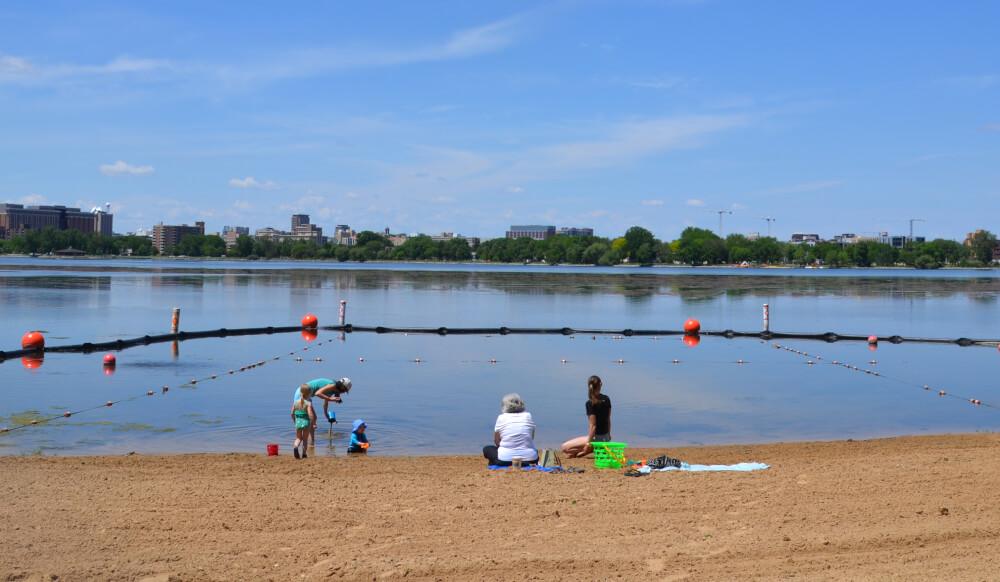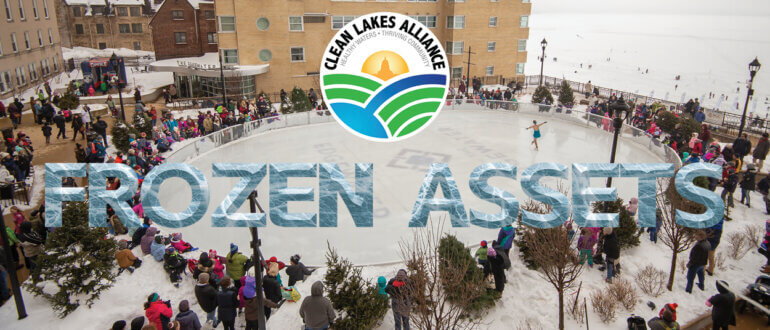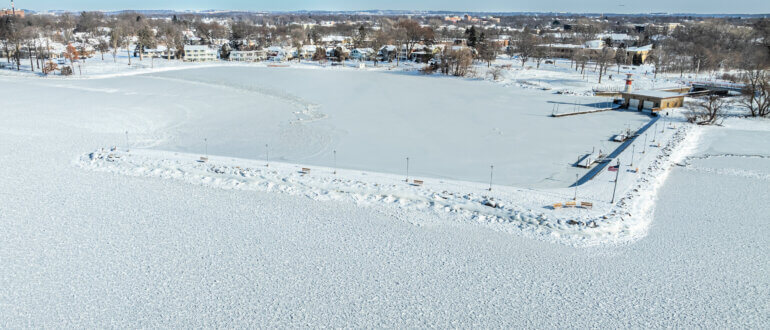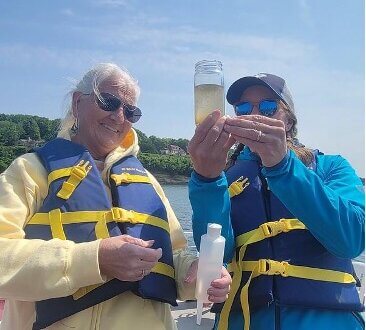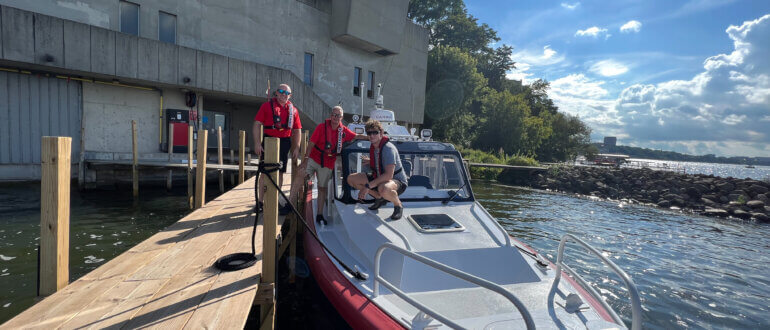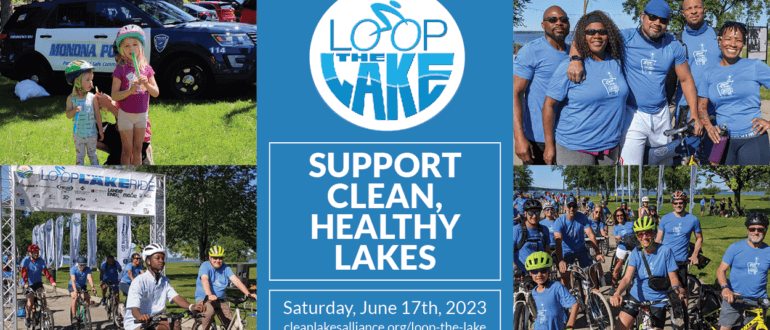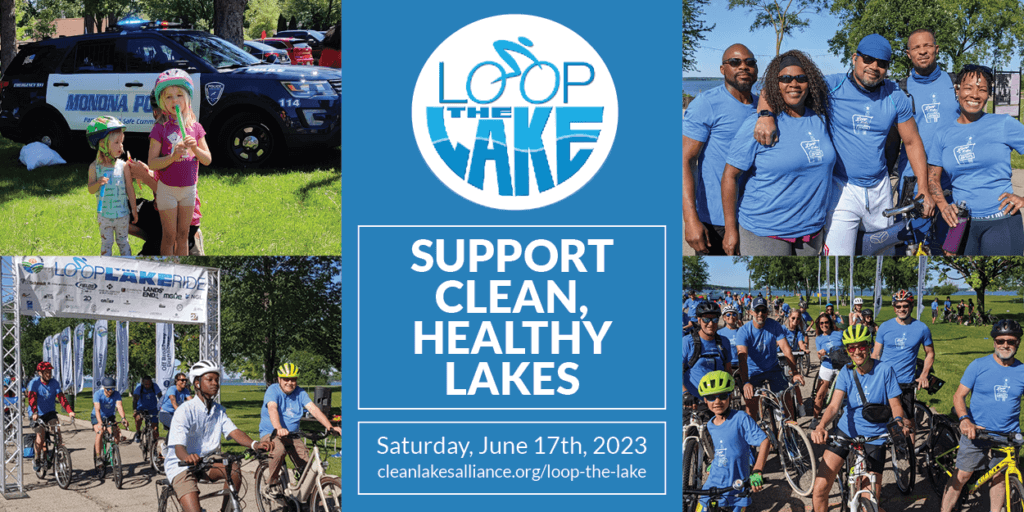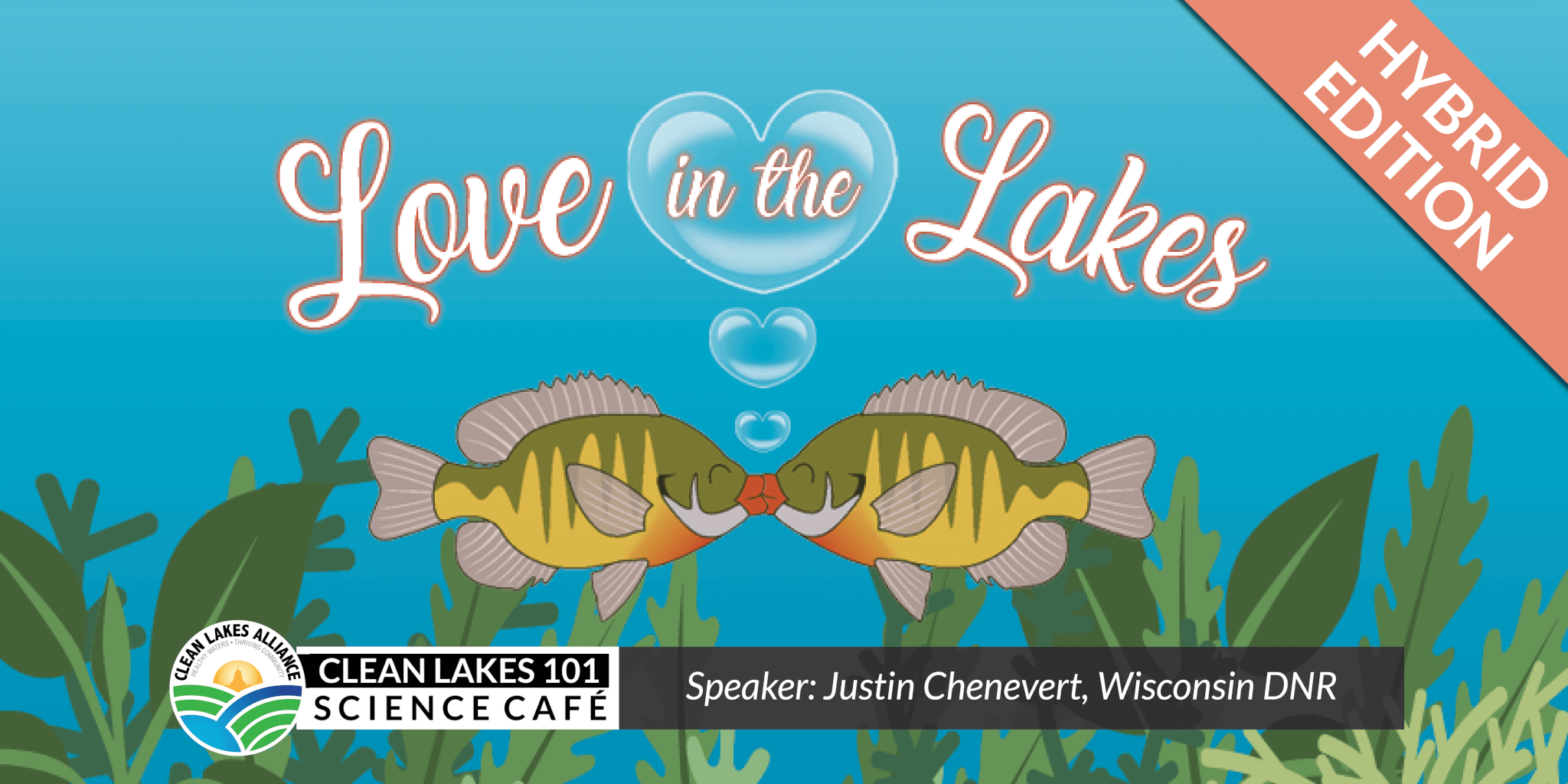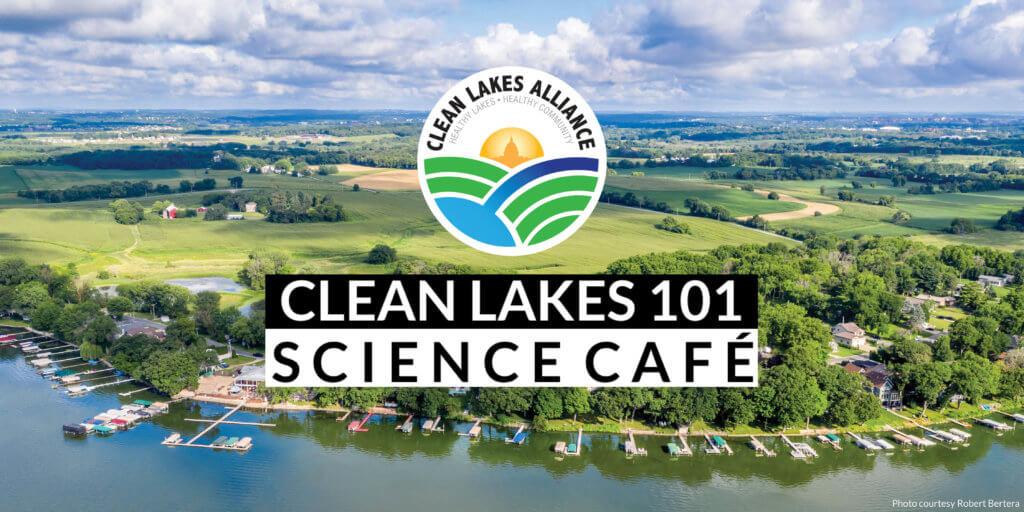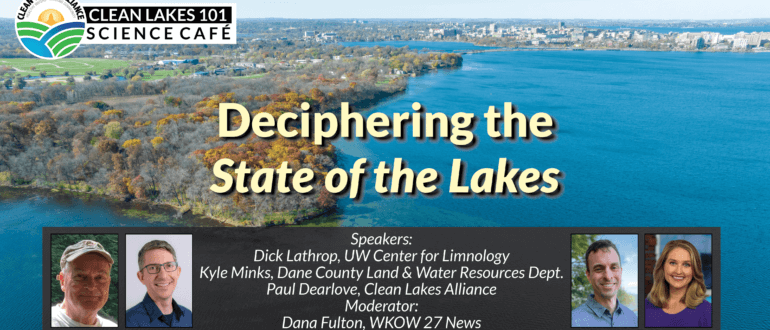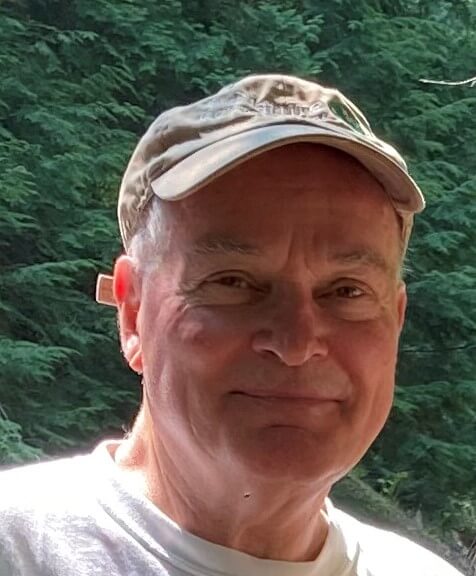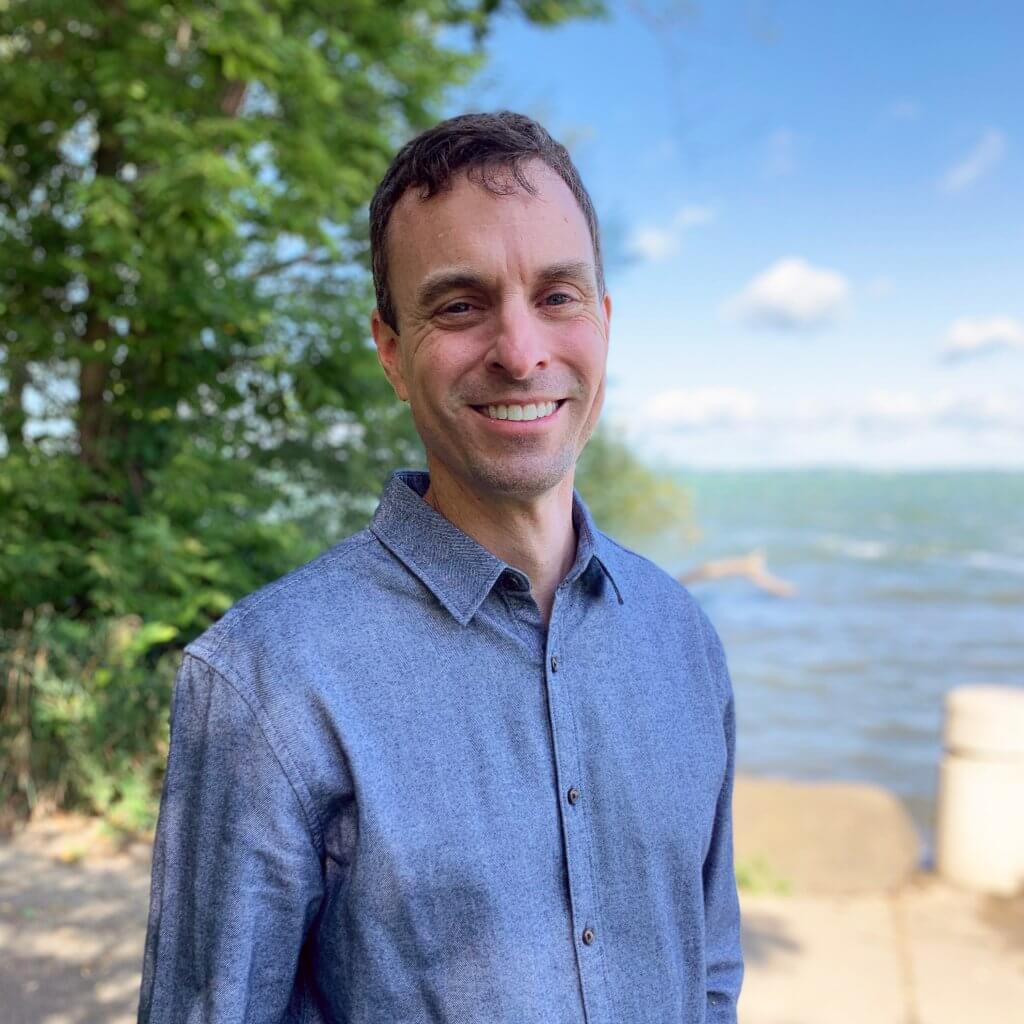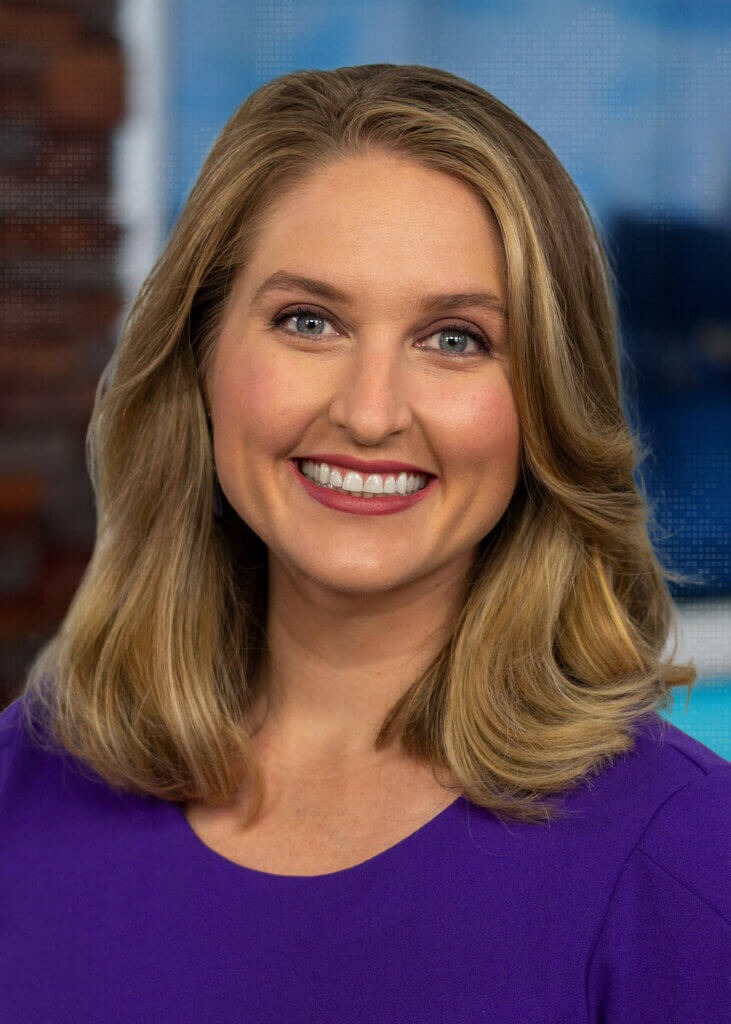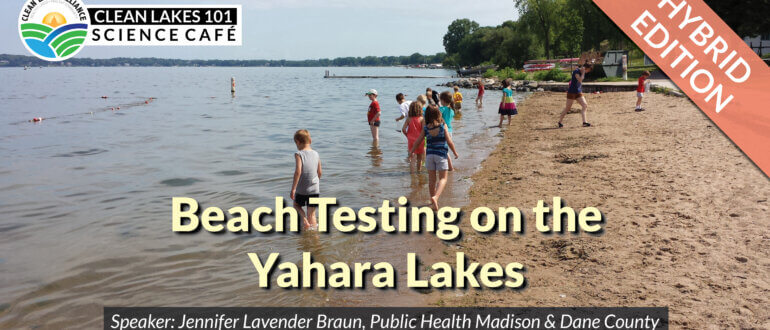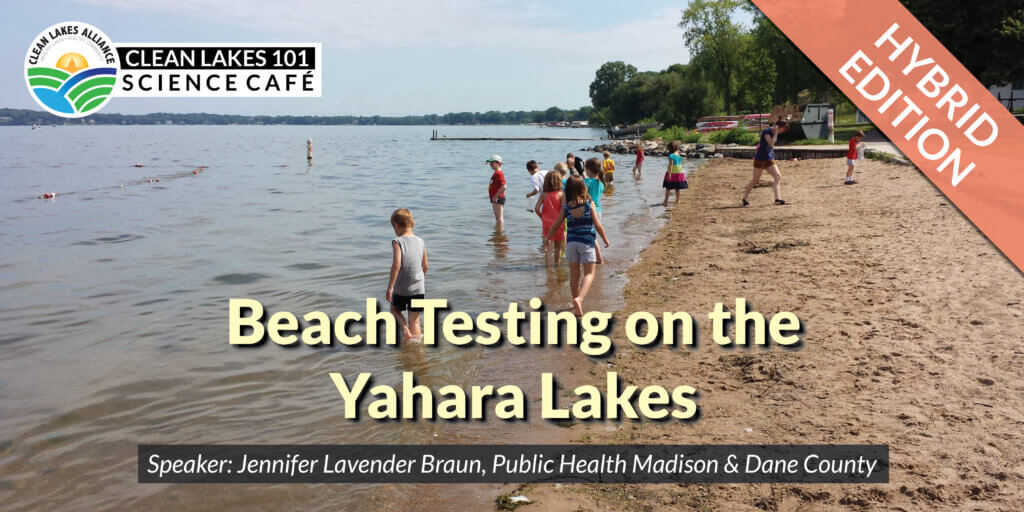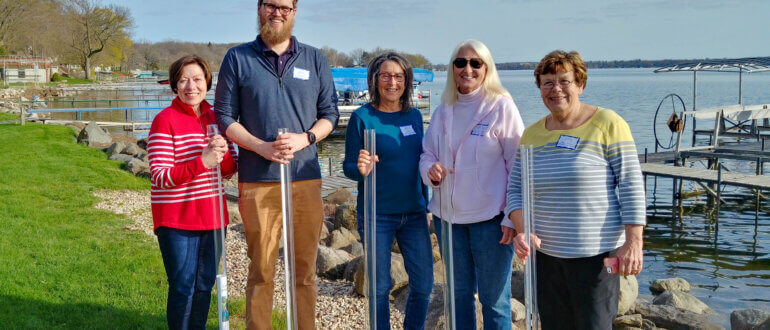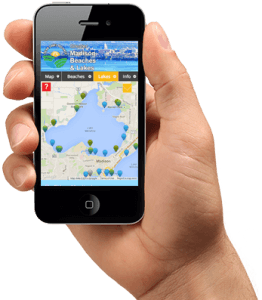Water Quality Monitoring
Clean Lakes Alliance’s water quality monitoring program was established in 2012, and the first water quality reports were collected in 2013 at 10 nearshore stations. In a few short years, our program has grown tremendously and our trained volunteers now monitor 87 nearshore and 7 offshore sites on all five Madison area lakes.
Our nearshore volunteers gather data on water clarity and temperature, make visual observations on beach conditions, and identify potentially harmful cyanobacteria (blue-green algae) blooms. This information is made readily available to the public in real-time at lakeforecast.org. Information is also viewable through the LakeForecast app, which is available for Apple and Android. LakeForecast shows which beach or lake access point is closest, and which have the best conditions both currently and over time.
Clean Lakes Alliance volunteer monitors also take weekly measurements of water clarity, water temperature, and dissolved oxygen profiles at the deep points of all five lakes. These efforts complement monitoring done by other groups and will allow us to compare water clarity in the middle of the lake with clarity closer to shore.
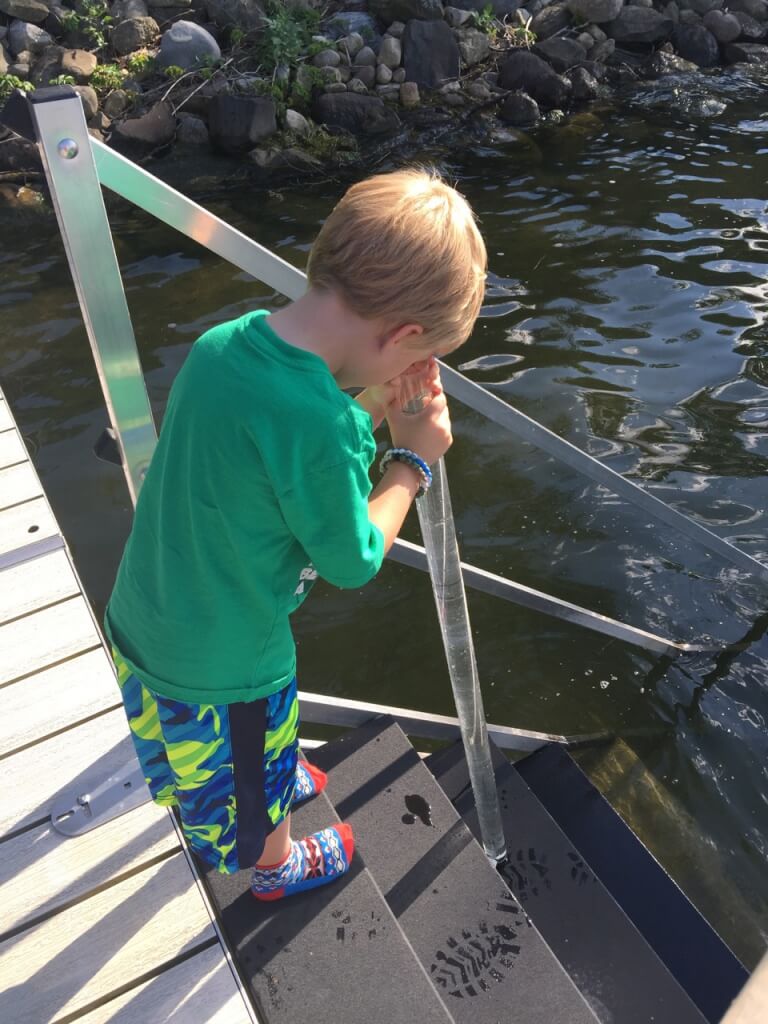
Water quality monitoring is a great way to raise awareness of the opportunities and challenges facing our lakes, while creating meaningful data to be used for research and advocacy. Learn more about the program:
- 2023 Yahara Lakes Water Quality Monitoring Manual
- Clean Lakes Alliance Water Quality Monitoring Training video
- Lake Forecast Weekend Lake Reports
- 2023 Water Quality Monitoring Results
- 2022 Water Quality Monitoring Results
- 2021 Water Quality Monitoring Results
- 2020 Water Quality Monitoring Results
- 2019 Water Quality Monitoring Results
- 2018 Water Quality Monitoring Results
- 2017 Water Quality Monitoring Results
Become a volunteer water quality monitor
We are beginning our search for 2024 volunteer water quality monitors. If you are interested in learning more, please reach out to caitlin@cleanlakesalliance.org.
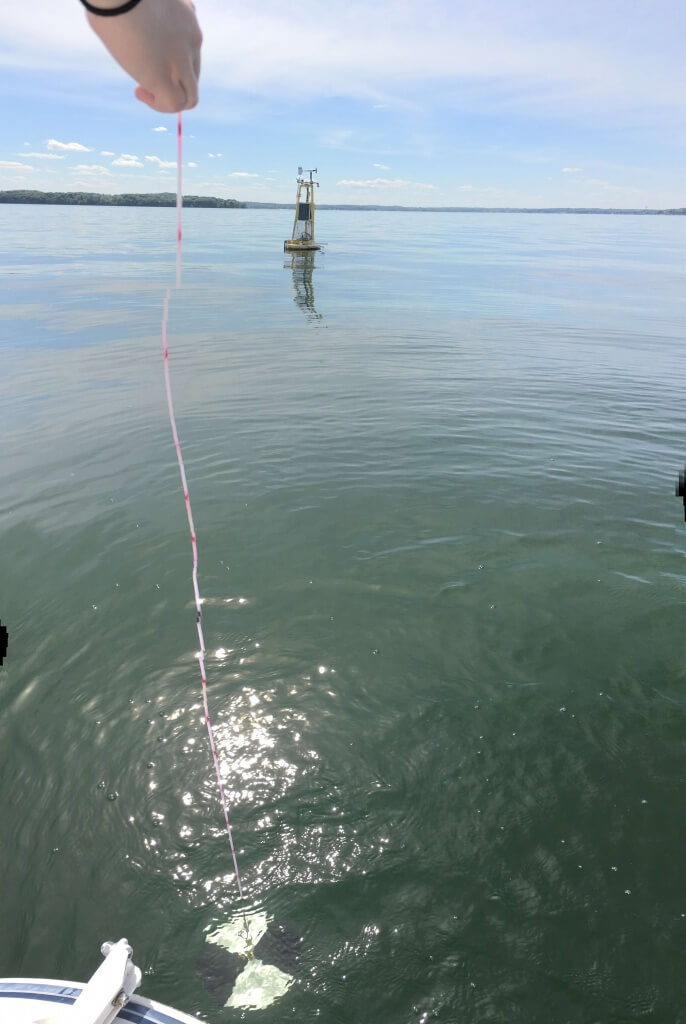
Are you ready to take action on behalf of our lakes? Ever wonder about water quality conditions and trends off your own pier or at your favorite beach?
As a volunteer, you will:
- Take on the role of a lake scientist
- Measure real-time, nearshore water quality conditions
- Help researchers better understand how algal blooms develop and migrate around the lake
Thank you 2022 water quality monitors!
- Allan Levin
- Allen Arntsen
- Amie Francisco
- Amy Wencel
- Andy Ippolito
- Arlene Koziol
- Bill & Amanda Blank
- Bob Bertera
- Bob Gross
- Brittingham Boats
- Brooke Waterman
- Carol Michalski
- Carolyn Betz
- Carson Eccles
- Cassy Cooley
- Catherine Nguyen
- Cheryl Namyst
- Chris and Jennifer Henderson
- Cindy Koschmann
- Cole Seckel
- Connie Hagen
- David Schroder
- Diana Tapia Ramon
- Dick Wallace
- Doris Dubielzig
- Doug Bach
- Elaine Meier
- Emma Erickson
- George Benton
- George Corrigan
- Greg Quam
- Gwen Eudey
- Ian Wegger
- Jackie Lanear
- Jacob Stampen
- Jan Van Vleck
- Jane Sullivan
- Janice Kellogg
- Jay Larson
- Jeff Steele
- Jerry Jendrisak
- Jill Ball
- Jim and Joan Cordray
- Jim Wilcox
- John Bottorff
- John Nicol
- John Tye
- Joy Newmann
- Kaelin Fontaine
- Kari Brock
- Ken LePine
- Ken Walz
- Kim & Tom Walz
- Kim Sprecher
- Kim Van Brocklin
- Kimberly Rios
- Kitty Brussock
- Linda Malkin
- Lindsey Klicko
- Lisa Grueneberg
- Lori Wallman
- Lynn Ascione
- Madison Wynn
- Mark Jung
- Mary Crenny
- Mary Hillebrand
- Mathew Chotlos
- Matt and Kim Lechmaier
- Mel McCartney
- Michael Oleniczak
- Mike Horn
- Mike Schmidt
- MJ and Tom Morgan
- Nancy Ellison
- Paul Hendrickson
- Peggy Lee
- Rachel Groman
- Raymond Rajala
- Regan Botsford
- Rhonda Arries
- Robert Gilbert
- Robert Montgomery
- Sally Lehner
- Sam Warfel
- Sarah Balz
- Sarah Fix
- Seth McGee
- Stephanie Ogborne
- Steve Gordon
- Terri Lefebvre & Joe Campshure
- Terry Peterson
- Tom Smith
- Will Vukk
- Woody Kneppreth
- Zak Redding
Lake Forecasting Stewards are welcome to join the program at any time and select their sampling site location. As a donor to this program, you’ll cover equipment costs and learn how to test water clarity, identify cyanobacteria (blue-green algae) blooms, and more!
Background
Our monitoring program formed in 2012 under the guidance of University of Wisconsin scientists. Browse the timeline below to see highlights over the years.
2021
- 77 nearshore monitoring stations including all 25 public beaches and 7 offshore sites
- Program record of 101 volunteer water quality monitors
- In partnership with the UW-Madison Water Systems & Society Research Group, 7 volunteers measured microcystin (algal toxin) concentrations throughout the summer
- Clean Lakes Alliance participated in a global collaboration with BloomOptix to collect microscopic images of algae and cyanobacteria cells to pilot a rapid identification method
- 2,105 water quality condition reports taken throughout the 2021 monitoring season
2020
- 71 nearshore monitoring stations including all 25 public beaches; 7 offshore sites
- Performed algal toxin (microcystin) testing at six public beaches in partnership with UW-Engineering
- LakeForecast featured weekly on Channel 3000 in new partnership to report water quality conditions on local television
- 2,294 water quality condition reports taken throughout the 2020 monitoring season
2019
- 71 nearshore monitoring stations including all 25 public beaches; 7 offshore sites
- Continued microcystin testing at James Madison Park, in partnership with UW-Engineering
- 2,005 water quality condition reports taken throughout the 2019 monitoring season
2018
- 79 nearshore monitoring stations including all 25 public beaches; 7 offshore sites
- E. coli bacteria and microcystin cyanobacteria toxin sampling pilots launched
2017
- 62 nearshore monitoring stations, 7 offshore sites
- 1,258 data reports
2016
- 72 nearshore monitoring stations, 7 offshore sites
- 1,258 data reports
2015
- 58 nearshore monitoring stations
- 1,258 data reports
2014
- Launched lakeforecast.org mobile-ready website
- 46 nearshore monitoring stations
- 945 data reports
2013
- Citizen monitoring pilot launched first year
- E. coli bacteria testing at James Madison Park beach
- 10 nearshore monitoring stations
- 204 data reports
2012
- Citizen monitoring task force formed
- Program designed under leadership of Jon Standridge (retired Wisconsin State Laboratory of Hygiene) and Dr. Dick Lathrop (retired WDNR & Center for Limnology)
Thank you to our volunteers and partners for their continued efforts!
Partners
City of Madison
City of Monona
Dane County
5Nines
Public Health – Madison & Dane County
UW-Madison Center for Limnology
UW-Madison Space Science and Engineering Center
UW-Madison Morgridge Center for Public Service
Madison Boats
National Science Foundation Long Term Ecological Research
Wisconsin Department of Natural Resources
Lake Forecasting Stewards
A special thanks to the donors who were Lake Forecasting Stewards in 2020! Through your support, we are able to cover equipment costs to help support and expand the program. Become a Lake Forecasting Steward today. (Donors denoted with asterisks are also volunteer monitors!)
George & Susan Benton *
James & Kathleen Brussock *
Friends of the Lakeshore Nature Preserve *
Lloyd Eagan
Ryan & Mary Gallagher
Robert & Jenifer Gilbert
G. Michael & Lynne Horn *
Jeffrey & Arlene Koziol *
Joe Campshure & Terri Lefebvre *
Linda & Mark Malkin *
Leigh Meier *
Dick & Noel Pearson *
Drew Rodysill
Brett & Kim Sprecher *
Jacob & Karen Stampen *
Jill Storms Ball *
Kirk & Betsy Swenson *
James & Joan Wilcox *
